PELICAAAANNNNN!!!!
Is the signal on STEADFAST, top of lungs; it’s one that commands our absolute attention, (second only to WHAAAAALES!!!!! without the Nantucket accent).
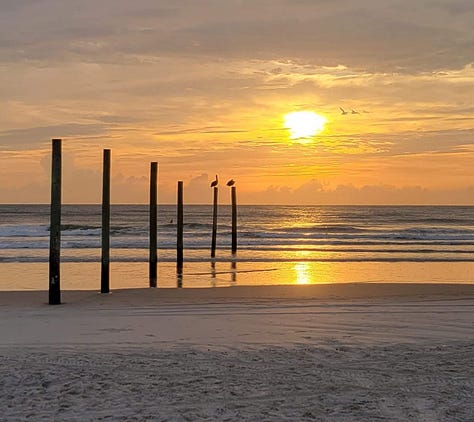
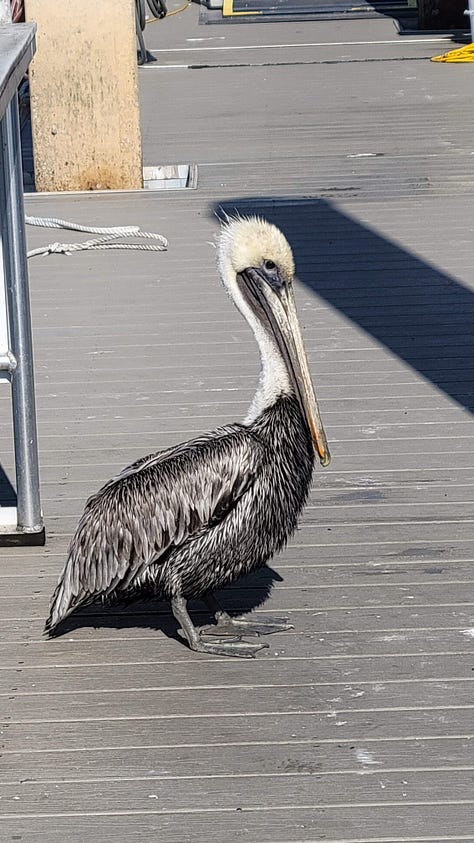
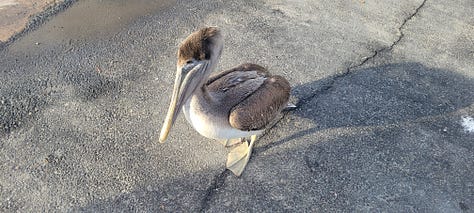
How do they glide so close to the surface of the waves in perfect military formation? Mother Nature gave them that, seven feet of wingspan, amazing eyesight and no fear of diving from impressive heights for a meal. What’s not to admire?
I am a bird lover, unless they’re roosting in my rig and pooing on my vessel. No. I shouldn’t have qualified that statement; I’m an enthralled watcher who is jealous of their innate ability to fly. I also wish the spreader-dwellers either didn’t eat those purple berries or would not automatically lighten their loads prior to takeoff. Both, really. I can see why our rig is desirable, and could be flattered, but that whole flocking thing can be a messy proposition.
As a child in way-Upstate New York, my family had bird feeders galore and we could identify most species. We recognized that the song chick-a-dee-dee-dee was exactly that and when the Blue Jays showed up everyone would scatter until those dominators had their fill. Cardinals were a standout, finches a blur.
HERMAN the banded racing Pigeon from Japan came into our lives in the remote Out-Islands of the Bahamas and was such a wonder, so impactful; he taught us several of Mother Nature’s lessons. Here are his first two chapters, in case you missed them. I delved into another genre and hope this will be a widely distributed children’s story someday…. Those are the birds I grew up with, nothing larger than a pigeon.
and the second part:
Whenever I traveled, which was as often as I could, it was the Pelicans that fascinated me, and still do. I never tire of them.
Pelicans have always been latitude indicators; you knew you had made it to the Carolinas when you started to see them along the shoreline. Gradually, they have made their way farther north. This fall we were driving over the Chesapeake Bay Bridge and spied two Brown Pelicans beneath it, following a fishing workboat as they are prone to do anywhere. I don’t think I realized the implication of it, at first, and then it struck me. Was it a warming climate or a lack of food? I have sought out discussion of this but have not found a satisfactory answer as of yet. Does anyone know the theory(ies) or the truth?
During this ironically cold winter, I cannot resist putting our stale provision crackers out on my broad kitchen windowsill for the unfamiliar black songbirds that made the regrettable decision to spend the winter here. Last year I hear it was do-able, but this year, brrrrr with gale force. They deserve a little help, and I think they appreciate it.
FULL DISCLOSURE: I should have pelicans for company as you read this. A true friend invited us to spend a few days aboard his sailing vessel in the Bahamas and we absolutely could not refuse. If I’m crazy lucky, (and we all know I’m the first word in that description) I’ll spy a Flamingo and be in heaven.
Here’s why we decided to book the flight. Left ,Maryland. Right, Bahamas.
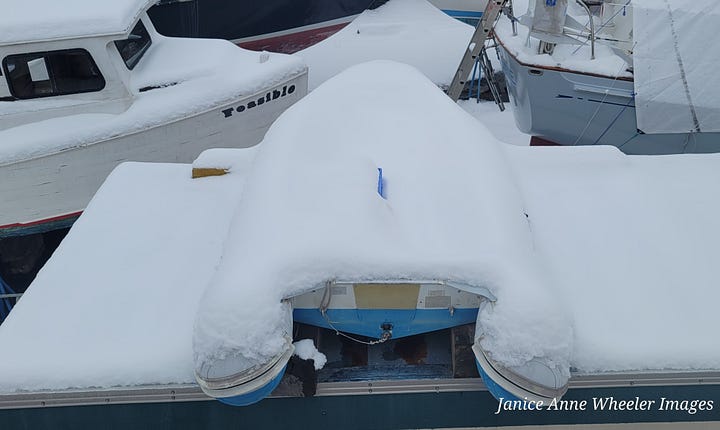
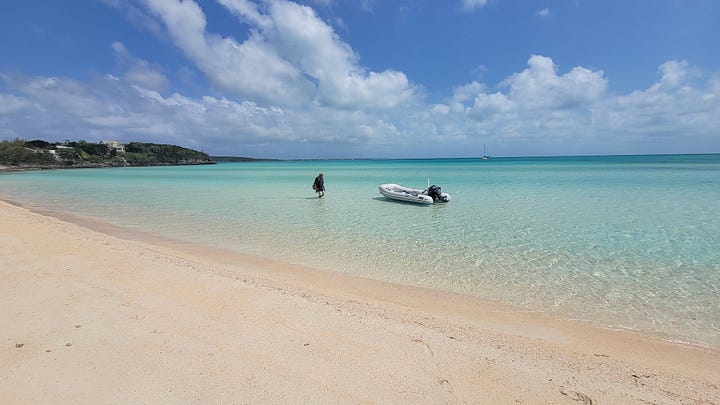
Have a wonderful week, my readers, and know how much I appreciate your time, your quiet loyalty, and your comments. If you deem my work to be share-worthy, please do so. ~J
If you are new to SPARRING and did not have the opportunity to read my introductory Substack, I advise it for spirit, perspective & background.
Want more? I hope so!











Definitely a well deserved vacation! I remember seeing my first pelican. I knew they existed but to see one in person was amazing! Years later, I was quite fascinated with the monkeys in a dumpster at a Miami marina. Mutual of Omaha's Wild Kingdom in real life--yeah, I don't travel much. 😁
Pelicans - so big so graceful. It's quite odd but I always think of Catalina planes that my dad used to talk about from WWII when he was in the RAAF.